I am solving coding challenge on CodingBat.com. Here is the question:
Given a string and a non-empty word string, return a version of the original String where all chars have been replaced by pluses ("+"), except for appearances of the word string which are preserved unchanged.
plusOut("12xy34", "xy") → "++xy++" plusOut("12xy34", "1") → "1+++++" plusOut("12xy34xyabcxy", "xy") → "++xy++xy+++xy"
Here is my attempted solution:
public String plusOut(String str, String word)
{
String ret = "";
for (int i = 0; i < str.length() - word.length() + 1; ++i) {
if (str.substring(i, i + word.length()).equals(word))
ret += word;
else
ret += "+";
}
return ret;
}
But is giving wrong outputs: giving too many plus signs. I don't understand why this shouldn't work. I suspect that the substring method is not returning enough matches, so the plus sign is appended. But I don't see why this maybe so.
